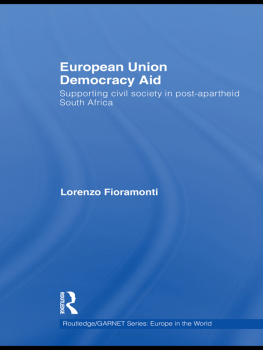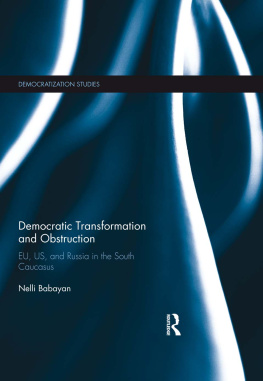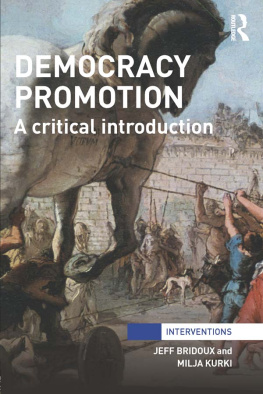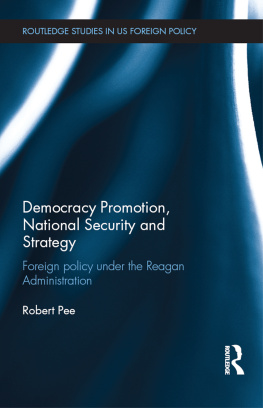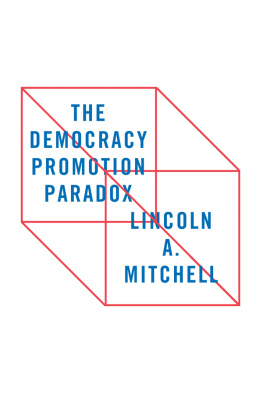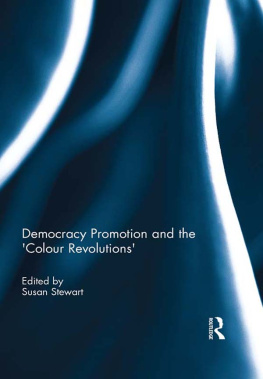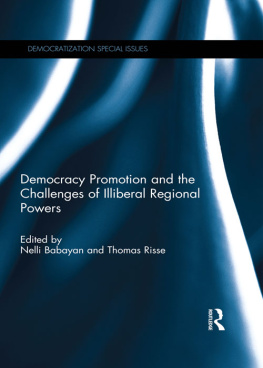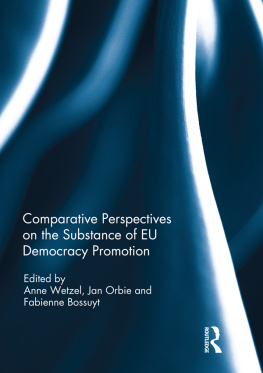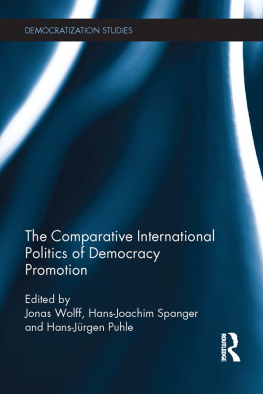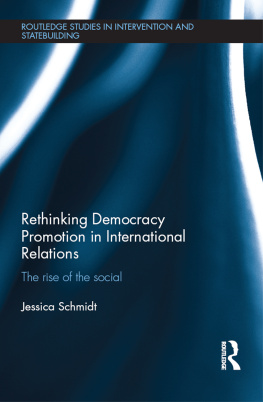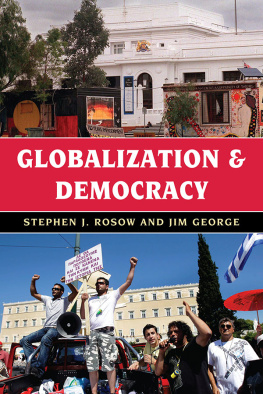Democratic Futures
Democracy promotion has been an influential policy agenda for many Western states and international organisations, and amongst many NGO actors. But what kinds of models of democracy do democracy promoters promote or support? This book examines in detail the conceptual orders that underpin such activity, and the conceptions of democracy that democracy promoters, consciously or inadvertently, work with. Such an examination is not only timely but much-needed in todays context of multiple democratic and financial crises. Contestation over democracys meaning is returning, but how is this contestation reflected, if at all, in democracy promotion policies and practices?
Seeking to open up debate on multiple models of democracy, this text provides the reader not only with the outlines of various possible politico-economic models of democracy, but also with a close empirical engagement with democracy promoters discourses and practices. Drawing on a broad spectrum of examples, it exposes the challenges faced by Western governments and international organisations in trying to reshape the political and economic landscape across the world and tentatively advances a set of concrete policy provocations which may enable a more pluralist and flexible democracy promotion practice to emerge.
This innovative new work will be essential reading for all students of democratisation, democracy promotion and international relations.
Milja Kurki is a professor at Aberystwyth University and the Principal Investigator of a European Research Council-funded project, Political Economies of Democratisation (20082012).
Interventions
Edited by:
Jenny Edkins, Aberystwyth University and
Nick Vaughan-Williams, University of Warwick
As Michel Foucault has famously stated, knowledge is not made for understanding; it is made for cutting. In this spirit the EdkinsVaughan-Williams Interventions series solicits cutting-edge, critical works that challenge mainstream understandings in international relations. It is the best place to contribute post-disciplinary works that think rather than merely recognize and affirm the world recycled in IRs traditional geopolitical imaginary.
Michael J. Shapiro, University of Hawaii at Mnoa, USA
The series aims to advance understanding of the key areas in which scholars working within broad critical, post-structural and post-colonial traditions have chosen to make their interventions, and to present innovative analyses of important topics.
Titles in the series engage with critical thinkers in philosophy, sociology, politics and other disciplines and provide situated historical, empirical and textual studies in international politics.
Critical Theorists and International Relations
Edited by Jenny Edkins and Nick Vaughan-Williams
Ethics as Foreign Policy
Britain, the EU and the other
Dan Bulley
Universality, Ethics and International Relations
A grammatical reading
Vronique Pin-Fat
The Time of the City
Politics, philosophy, and genre
Michael J. Shapiro
Governing Sustainable Development
Partnership, protest and power at the world summit
Carl Death
Insuring Security
Biopolitics, security and risk
Luis Lobo-Guerrero
Foucault and International Relations
New critical engagements
Edited by Nicholas J. Kiersey and Doug Stokes
International Relations and Non-Western Thought
Imperialism, colonialism and investigations of global modernity
Edited by Robbie Shilliam
Autobiographical International Relations
I, IR
Edited by Naeem Inayatullah
War and Rape
Law, memory and justice
Nicola Henry
Madness in International Relations
Psychology, security and the global governance of mental health
Alison Howell
Spatiality, Sovereignty and Carl Schmitt
Geographies of the nomos
Edited by Stephen Legg
Politics of Urbanism
Seeing like a city
Warren Magnusson
Beyond Biopolitics
Theory, violence and horror in world politics
Franois Debrix and Alexander D. Barder
The Politics of Speed
Capitalism, the state and war in an accelerating world
Simon Glezos
Politics and the Art of Commemoration
Memorials to struggle in Latin America and Spain
Katherine Hite
Indian Foreign Policy
The politics of postcolonial identity
Priya Chacko
Politics of the Event
Time, movement, becoming
Tom Lundborg
Theorising Post-Conflict Reconciliation
Agonism, restitution and repair
Edited by Alexander Keller Hirsch
Europes Encounter with Islam
The secular and the postsecular
Luca Mavelli
Re-Thinking International Relations Theory via Deconstruction
Badredine Arfi
The New Violent Cartography
Geo-analysis after the aesthetic turn
Edited by Sam Okoth Opondo and Michael J. Shapiro
Insuring War
Sovereignty, security and risk
Luis Lobo-Guerrero
International Relations, Meaning and Mimesis
Necati Polat
The Postcolonial Subject
Claiming politics/governing others in late modernity
Vivienne Jabri
Foucault and the Politics of Hearing
Lauri Siisiinen
Volunteer Tourism in the Global South
Giving back in neoliberal times
Wanda Vrasti
Cosmopolitan Government in Europe
Citizens and entrepreneurs in postnational politics
Owen Parker
Studies in the Trans-Disciplinary Method
After the aesthetic turn
Michael J. Shapiro
Alternative Accountabilities in Global Politics
The scars of violence
Brent J. Steele
Celebrity Humanitarianism
The ideology of global charity
Ilan Kapoor
Deconstructing International Politics
Michael Dillon
The Politics of Exile
Elizabeth Dauphinee
Democratic Futures
Revisioning democracy promotion
Milja Kurki
Postcolonial Theory
A critical introduction
Edited by Sanjay Seth


